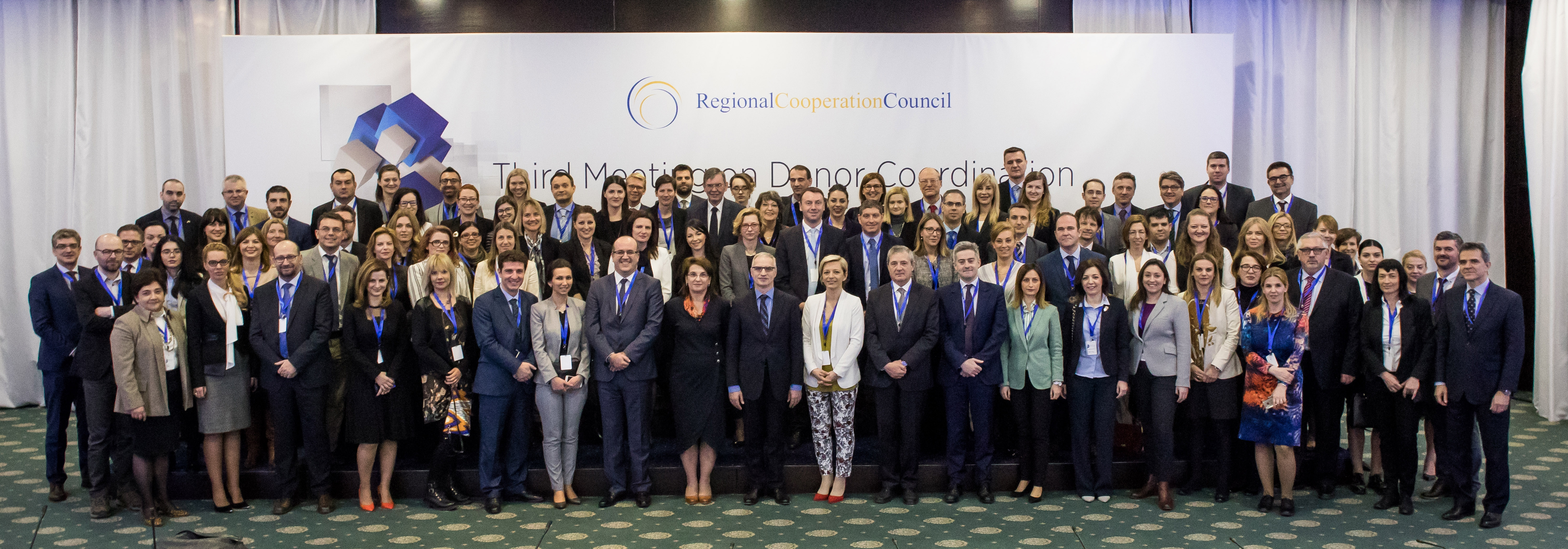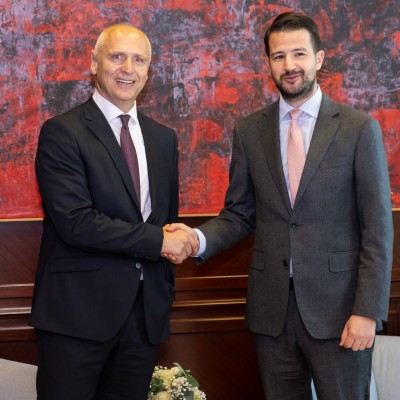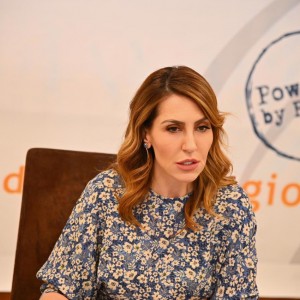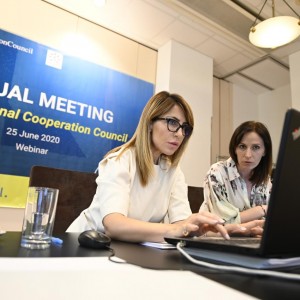Svilanovic: Higher level of regional economic integration can alleviate region’s economies
16 March 2017

Participants of the Third Meeting on Donor Coordination in the Western Balkans, organized by RCC on 16 March 2017, in Sarajevo, BiH. (Photo: RCC/Haris Calkic)
Sarajevo - “To restart convergence with the EU, the Western Balkans (WB) economies need to look outside of their borders and the fairly small national economies,” said the Regional Cooperation Council (RCC) Secretary General, Goran Svilanovic, at the opening of the Third Meeting on Donor Coordination in the WB, in Sarajevo today.
The meeting serves as a platform for discussion of ongoing and planned donor interventions, as well as the needs and priorities for the 2017 – 2019 period from different perspectives. It is expected to result in a clearer picture of what are real funding gaps at the regional level and how the region can better align its joint interventions in order to close those gaps.
“Today’s meeting comes at a demanding time, plagued by a number of political, economic and social challenges, both in our region, but also in the wider European and global context. Higher level of regional economic integration, in the area of trade, investment, labour mobility, underpinned by better integrated infrastructure, can bring the economies of scale that our region needs,” added Svilanovic.
In his opening remarks, Nicholas Cendrowicz, European Commission DG NEAR’s Deputy Head of Regional Co-Operation and Programmes (Western Balkans), said that, looked from the EU perspective, the Western Balkans is very much on the European Agenda, and added that the regional cooperation is not a substitute to joining the EU or some kind of a separate path – it is a part of the region’s journey to the EU.
“Regional cooperation will bring the region faster to the EU, which is a name of the game in the EU relations with the Western Balkans. The RCC is putting the regional cooperation in practice and that is very important,” emphasized Cendrowic .
The meeting drew special attention to the issues of economic development as well as rule of law and security cooperation, through discussions including a number of high-level officials from the region.
The panel on economic development has been moderated by Aleksandar Andrija PEJOVIĆ, Montenegrin Minister of European Affairs, with Arban ABRASHI, Kosovo* Minister of Labour and Social Welfare, Milena HARITO, Albanian Minister for Innovation and Public Administration, and Matteo RIVELLINI, Head of European Investment Bank‘s Division on Lending Operations in Slovenia, Croatia and Western Balkans as panellists.
The panel on Rule of Law and Security: Achievements and Demands, has been moderated by the Sanja DIMITRIEVSKA, State Secretary of the Ministry of Interior of The Former Yugoslav Republic of Macedonia, with Ratka SEKULOVIC, Director of Regional School for Public Administration; Gazmend TURDIU, Deputy RCC Secretary General; Monika TORTSCHANOFF, Programme Manager Western Balkans/Danube Region at the Austrian Development Agency; Hedvig MORVAI, Executive Director of the European Fund for the Balkans; and Mario JANEČEK, Counter-Terrorism Coordinator at the Ministry of Security of Bosnia and Hercegovina, as panelists.
The donor coordination conference is an annual event, introduced by the Regional Cooperation Council in 2015. It brought together government representatives from the Western Balkans, major international donors, regional organizations, international financial institutions, civil society organisations and other stakeholders.
*This
designation is without prejudice to positions on status, and is in line with
UNSCR 1244/1999 and the ICJ Opinion on the Kosovo declaration of independence



